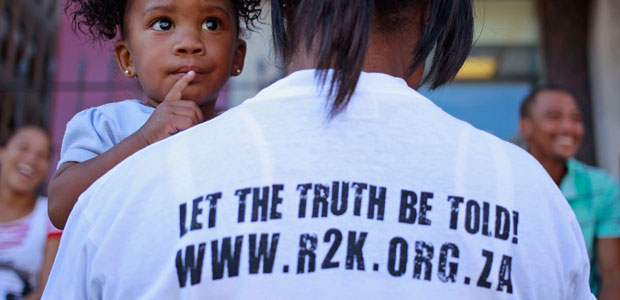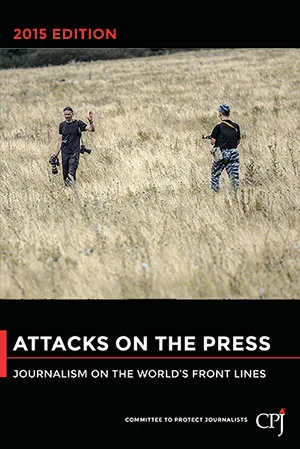Nelson Mandela regularly harangued the media once he’d been freed after 27 years of imprisonment by South Africa’s apartheid government. He would call individual journalists when he liked or disliked something they had written or when he wanted to advance a political lobby.
He once rattled the industry by complaining that black editors had not changed the template of journalism to match the requirements of a democratic era. Did he want the editors to be sweethearts? The question caused a stir.
In 1994 Mandela made a seminal speech on media freedom at a congress of the International Press Institute that set the bar high for what media freedom and free expression should look like in a democratic South Africa. He did so in one unequivocal proclamation: “A critical, independent, and investigative press is the lifeblood of any democracy.”
As an editor of the new era, I can attest that the South African media is, in fact, critical, independent, and investigative. I worked in decidedly un-free times and reported on the arrival of freedom. We in the media have taken our place, under constitutional protection, as a vital institution of society. We hold power to account. We are proud of our robust investigative bent and trenchant style. We are undoubtedly part of the lifeblood of our democracy.
Yet not everyone agrees, and as a result that lifeblood is under threat.
In his speech Mandela also observed, “The press must be free from state interference.” Here, things get more complicated. The instinct of the powerful (both corporate and political) is often to stifle the dissemination of uncomfortable information. That, unfortunately, is taking a toll on press freedom in South Africa, where the media faces the real threat of an outdated secrecy law with the potential to harm a critical, independent, and investigative press.
The South African media still labor under old apartheid laws in which defamation is criminalized, unlike in more progressive countries that limit litigation over insults and alleged media harm to civil cases. South Africa’s antiquated National Key Points Act, legislation promulgated by “securocrats”–members of the police and Security Service that dominated the South African government in the 1980s–to prevent access to key points such as police stations, the public broadcaster, politicians’ homes, and nuclear facilities, can be used to prevent reportage.
In 2014 the media was consumed by a controversy over the spending of 300 million rand (about $30 million) on the president’s private estate, and the Key Points Act was invoked to prevent the publication of images of the property. Though the attempt to stifle publication of the images was unsuccessful–people used social media to post images of the estate and also created satirical memes about it–the law’s invocation in this and other instances, including the prevention of protests at key points and denial of information requests, set a dangerous precedent for censorship in a country still finding its way as a democracy.
I have been saddened and surprised to observe firsthand how power corrupts and how the lure of easy wealth has turned revolutionaries into conspicuous consumers. Quick wealth accumulation may not always be ill gotten, but it often is. When that happens, the media have a responsibility to expose corruption.
I often remind officials and politicians that Mandela once said, “It is only such a free press that can have the capacity to relentlessly expose excesses and corruption on the part of government, state officials, and other institutions that hold power in society.” But those officials and politicians tend to dismiss Mandela’s words. Revolutionary values dissipate in the face of material acquisition, and the corrupt spare no expense in keeping their ways hidden.
We in the media often end up in court, at great expense, to keep open the promise of freedom that Nelson Mandela so eloquently made 20 years ago. The most common writ we face is the interdict, a form of prepublication censorship that can tie up reportage in legal knots for years. The other common court action concerns disputes over South Africa’s freedom of information law, which is often used to limit rather than ensure access to public information.
A truism especially applies in South Africa today: The price of freedom is eternal vigilance. The temptation to secrecy is easy, and in South Africa that temptation is increasingly limiting government transparency.
Next door to South Africa, in Swaziland, Africa’s last remaining absolute monarchy, there is no media freedom. There, two colleagues–Thulani Maseko and Bheki Makhubu–are jailed for exposing how judges have played fast and loose with the public purse. In late 2013 I had the privilege of meeting Bheki’s wife, Fikile, when she accepted the CNN/MultiChoice African Journalist of the Year award for press freedom on his behalf. She was poised and smiling as she accepted the honor, but when we exited the stage she burst into tears. Her little boy, Siwakile, comforted his mum. Even honor can be troubling when your loved one is in jail.
When I accepted the honor of the Committee to Protect Journalists’ 2014 International Press Freedom Award, I did so in the name of Bheki and my colleagues Woubshet Taye, Reeyot Alemu, and 15 other journalists jailed with them in Ethiopia.
South Africa enjoys a position of leadership and solidarity on our continent. If media freedom slips in South Africa, it will slip elsewhere. And, as Africa rises, her journalists should not be seen as enemies of the state but instead as the critical patriots we often are. Ethiopia is among the fastest-growing nations, but its view that development and media freedom cannot coexist deserves robust challenge.
A journalist’s place is not in jail. It is in the street, the newsroom, raking the muck, holding power to account to make a better country and continent. As Mandela said in that great speech 20 years ago, “It is only such a free press that can be the vigilant watchdog of the public interest against the temptation on the part of those who wield it to abuse that power.”
Ferial Haffajee is editor-in-chief of City Press, a South African investigative weekly.

